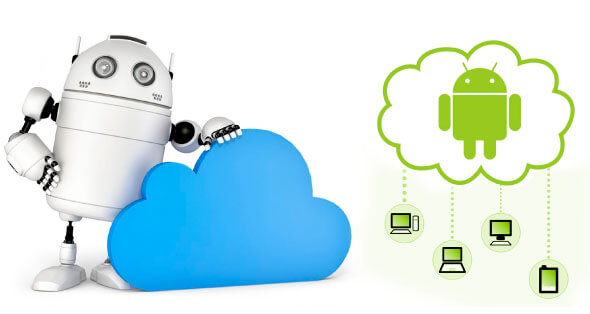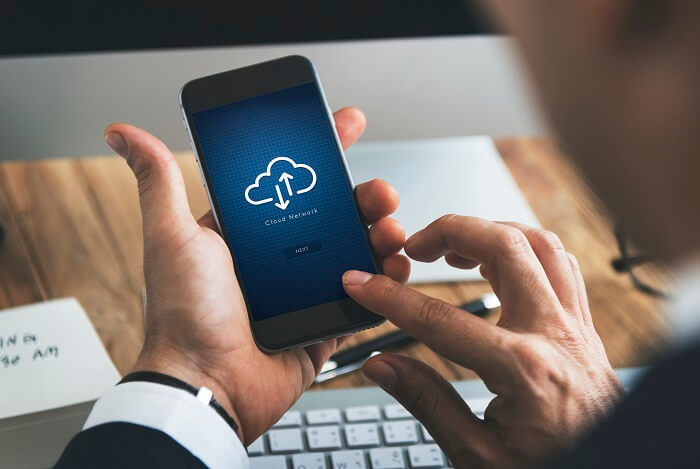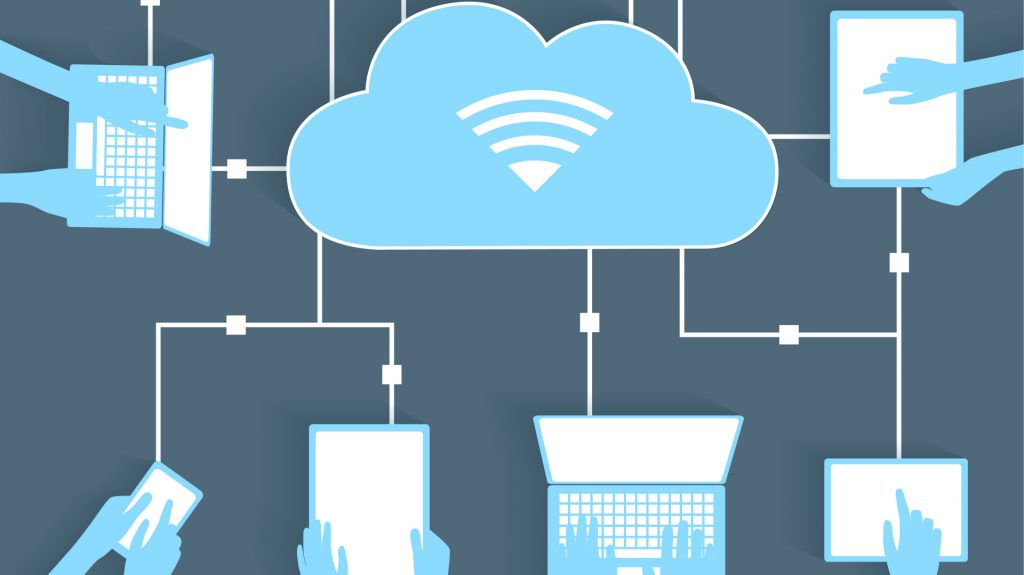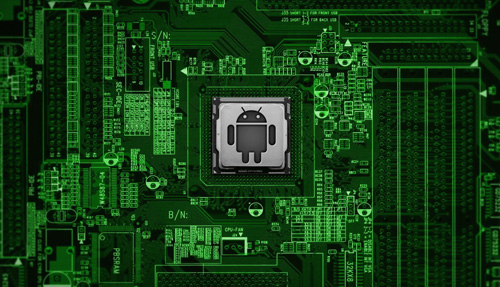Understand Cloud Computing for Mobile Applications
Mobile Cloud Computing, or MCC, merges the fast-growing Cloud Computing Applications market with the ubiquitous smartphone. One of the most ground-breaking blends of modern-day technologies, MCC has proved itself to be highly beneficial to all mobile users and cloud-based service providers as well.
In this technique, user-friendly mobile applications are developed, which are powered by and hosted using cloud computing technology. The ‘mobile cloud’ approach enables the apps developers to build applications designed especially for mobile users, which can be used without being bound to the operating system of the device or its capacity to store data. Here, the tasks of data processing and data storage are performed outside the mobile devices.
The ability of MCC to allow the device to run cloud-based web applications unlike other native apps differentiates it from the concept of ‘Mobile Computing’. Here the users can remotely access the store applications and their associated data anytime on the Internet by subscribing to the cloud services. Although most devices already run a mix of web-based and native apps, the trend these days seems to be shifting more toward the services and convenience that are offered by a mobile cloud.
Researchers are putting in serious efforts in forming a strong and symbiotic platform, coined the ‘Third Platform,’ that would bring together the mobile and the cloud. Experts predict this platform to revolutionize further the uprising of MCC which has enabled its users a better means to access and store their data along with the latest data synchronization techniques, improved reliability, and better performance. All these beneficial aspects have inspired a lot of people to consider MCC for their smartphones.
Mobile Cloud Computing confirms the impact of certain trends and factors. Here are the factors that have had an astounding impact as far as MCC is concerned.
- Enhanced broadband coverage: Better connectivity is being rendered to our mobile devices via 4G, WiFi, femtocells, fixed wireless, etc.
- Abundant Storage: Cloud-based mobile apps have proved themselves to be more capable than any smartphone, especially in terms of the storage space that is offered. Cloud apps’ server-based computing infrastructure that is accessible through the mobile interface of an app, is quite a contrast to the limited data storage space and processing power in a mobile device.
- Budding Technologies: Advanced technologies like HTML5, CSS3, Hyper-Visor virtual machines for smartphones, cloudlets, and Web 4.0, etc are contributing a lot toward MCC’s rising popularity.
- Latest Trends: Smartphones have enabled us with 24/7 access to business applications and other collaborative services have upped the scope to increase productivity from anywhere, at any given time.
Cloud Computing & The Future Scope of Android

Today, the popularity of this Linux-based operating system is quite apparent after looking at the massive chunk of smartphone users relying on Android. It has a large community of developers on its platform that develops applications to increase the devices’ functionality for their users. The introduction of cloud computing on this platform has taken the user experience of Android applications to another level altogether. In fact, both, the Android app developers and smartphone users are benefiting from the power of cloud computing.
Various layers of the Android programming model have smoothly accommodated the scope of creating secure applications that are specially developed for the cloud environment. Also, its open-source policy allows the complex cloud-computing applications to be run by the users anywhere.
For Android app developers, it’s quite different for them to develop applications in the traditional environment and in the cloud computing environment. In the traditional environment, the need to maintain the complete infrastructure at the back-end shifts the focus on maintaining the environment instead of making innovative applications. Whereas, in the case of apps for the cloud environment, it’s the cloud-service providers who manage the infrastructure, software stack, and hardware maintenance. This allows developers to write mobile cloud applications that profit from cloud computing and can deliver cost benefits and other such advantages to the users.
Most of us just consider games and other daily-life simplifying apps as the only inspiration for the developers to create Android applications, but a quick reality-check on the app market reveals that enterprise apps are catching and reaching a market share that attracts significant interest. In fact, research analysts have found mobile-centric applications and interfaces to be among the top 10 technological trends in 2018 and 2019.
Here are two well-known examples of cloud-based Android applications:
- Dropbox: Operated by Dropbox Inc., this application is a file-hosting service that offers cloud storage. It lets the users access their files in the ‘Dropbox’ from their Android devices, which can be synced to other computers or mobile devices.
- Amazon Cloud Player: One of the most popular applications on the Android platform, Amazon Cloud Player is used to store and play MP3 files. Here the ‘Cloud Drive’ acts as a hard drive set in the cloud. Users can play their MP3 files via the web or they can conveniently stream them on their Android devices using Amazon ‘Cloud’ MP3 application.
Android -Mobile Cloud Computing-Robotics – A surreal combination
Organizations and companies have changed their approach to designing and conceptualizing new products after including cloud computing in their calculations. Users and developers’ newly-earned ability to access the immensely flexible and cost-effective power of cloud computing has helped develop services that must have seemed simply infeasible just a few years back. A perfect example of this is Voice Search by Google for mobile devices. ‘Voice Search’ has enabled users to convey a voice query and have it transcribed accurately on their devices in real-time. The credit for this goes to Google’s ability to use the vast amount of search data to refine and define such voice queries with cloud infrastructure. Ever since its introduction, smart voice search services have. Today, almost 25% of queries on Android devices are using it.
Robotics and cloud computing can be a great combination that shall add more capabilities and may also help in saving the battery life of the device. And adding mobile connectivity to this gives robotics new capabilities while using lesser battery power and memory.
Reasons why cloud computing is the future of mobile devices
The interface of MCC has undeniably enabled us to accommodate videos, music files, digital images, and more, right into our petite smartphones. Here are a few reasons that explain why MCC is considered to be the future for mobile devices:
- Extended Battery Life: As the major role of processing is handled by the cloud, mobile devices’ battery usage is reduced automatically.
- Abundant Storage Space: Enormous storage capacity that a mobile user can access happens to be the most highlighted USP of the cloud service. Mobile users shall no longer need to worry about their devices’ limited storage capacity and spend money on memory cards.
- Improved data-synching techniques: Cloud storage enables the user to store and manage their data by speedy data synchronization between the device and any other desktop or device chosen by the user. This instantly benefits the users by eliminating their problems of storing all their data files and maintaining a backup.
- Enhanced processing facilities: The processor of any mobile device determines its speed and performance. However, in the case of mobile cloud computing, most of the processing is performed at the cloud level. This takes the load off the device and thereby enhances its overall performance.
- Superior user experience: In the case of MCC it is always the user who benefits the most by using this platform. The wide range of benefits offered by this platform makes for optimum productivity and an enhanced user experience.
Scope to embrace new technologies: MCC can easily adjust to the ever-evolving nature of technologies. It is capable enough to perform efficiently with all the upgrades in cloud computing methods and changes in the smartphones’ designs and features.
SSL Certificates at Low Prices







 (7 votes, average: 4.43 out of 5, rated)
(7 votes, average: 4.43 out of 5, rated)



